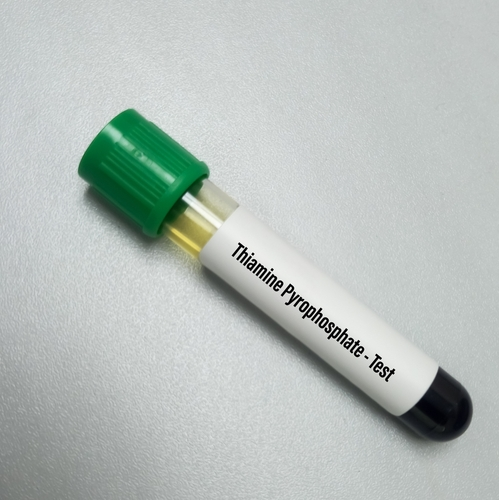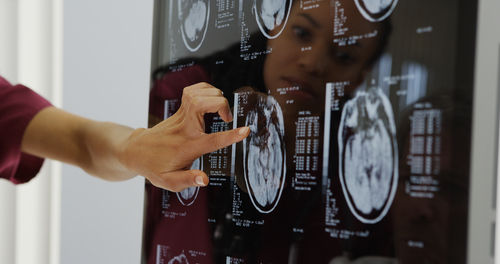Wet brain syndrome, also known as Wernicke-Korsakoff Syndrome, is a severe neurological disorder resulting from thiamine deficiency. The condition is common among individuals with a history of alcohol abuse, malnutrition, or other health problems that hinder proper thiamine absorption. It affects the brain and nervous system and, if untreated, can cause permanent brain damage.
This article will discuss the signs, symptoms, and treatment options for wet brain syndrome. We will also explore the importance of addressing it in sober living environments.
What is Wet Brain Syndrome?
Wet brain syndrome is a brain disorder caused by a severe thiamine deficiency (vitamin B1). Thiamine is essential to produce energy and maintain healthy brain function. The brain can become damaged without enough thiamine, resulting in wet brain syndrome.
This disorder can devastate a person’s physical and mental health. It is crucial to recognize the signs and symptoms of the illness to seek timely treatment and avoid irreversible damage to the brain.

How Can Sober Living Help With Wet Brain Syndrome?
Sober living can be immensely beneficial for individuals dealing with Wet Brain Syndrome, as it provides a supportive environment for their recovery. Living in a sober environment can help individuals with wet brain syndrome avoid triggers that may lead to alcohol consumption, which can worsen the condition.
In a sober living environment, individuals have access to specialized care and treatment from experienced addiction specialists and therapists. These professionals can create personalized treatment plans tailored to each individual’s specific needs, utilizing a range of therapies and holistic practices to promote healing and long-term recovery.
Causes of Wet Brain Syndrome
Alcohol consumption is one of the primary causes of wet brain syndrome. It can lead to malnutrition and vitamin deficiencies. Other common causes may include the following:
- HIV/AIDS
- Eating disorders
- Bariatric surgery
- Long-term use of certain medications
Symptoms of Wet Brain Syndrome
Common symptoms of Wet Brain Syndrome can include:
- Tremors
- Confusion
- Memory loss
- Vision problems
- Difficulty walking
- Maintaining balance
How Can Alcohol Abuse Lead to Wet Brain Syndrome?
Alcoholism is a significant risk factor for developing Wet brain syndrome. Studies have shown that alcoholics are more likely to develop this condition than non-alcoholics. Moreover, long-term alcohol abuse can damage the liver, which stores and releases thiamine in the body. This can further exacerbate thiamine deficiency and increase the risk of Wet brain syndrome.
It is essential to note that not all alcoholics develop Wet brain syndrome, and factors such as genetics and overall health can also play a role. However, reducing or eliminating alcohol consumption can significantly reduce the risk of developing this condition.

Wet Brain Syndrome Among Alcoholics
Treating wet brain syndrome requires addressing the underlying alcoholism. Abstinence from alcohol is the first step in preventing further damage to the brain and allowing it to heal. Studies have proven that up to 80% of alcoholics have a thiamine deficiency, putting them at a high risk of developing wet brain syndrome. The longer someone abuses alcohol, the greater their risk of developing the disorder.
It is vital for individuals who struggle with alcoholism to seek treatment and support. This will help them to address their addiction. It helps reduce their risk of developing wet brain syndrome. Long-term recovery requires a comprehensive approach to address the physical, emotional, and social aspects of alcoholism. This may include:
- Therapy
- Counseling
- Detoxification
- Support groups
- Medication-assisted treatment
Treatment for Wet Brain Syndrome
Treating wet brain syndrome typically involves a combination of medical interventions, long-term sobriety, lifestyle changes, and therapy and support groups. With the proper treatment and support, individuals with wet brain syndrome can successfully overcome the condition and achieve lasting recovery.
Medical Treatments
The primary medical treatment for wet brain syndrome is thiamine replacement therapy. This involves administering high doses of thiamine, either orally or intravenously, to restore thiamine levels in the body. In severe circumstances, hospitalization may be required for thiamine replacement therapy and to monitor for complications such as seizures or respiratory failure.
Other medical interventions may also be necessary to address any underlying conditions or complications related to wet brain syndrome. For example, if the individual has developed liver disease due to alcohol abuse, treatment for liver disease may be needed.

Lifestyle Changes
One of the most important aspects of treating wet brain syndrome is achieving and maintaining long-term sobriety. This involves abstaining from alcohol and other substances that can further deplete thiamine levels. It also consists of making lifestyle changes to support healthy recovery, such as eating a balanced diet, exercising regularly, and getting enough sleep.
Therapy and Support Groups
Therapy and support groups are crucial in addressing wet brain syndrome and alcohol addiction. Therapy can help individuals address any underlying psychological or emotional issues that may be contributing to their alcohol abuse and can also help them develop coping skills to prevent relapse.
- Cognitive-behavioral therapy (CBT) can support people in identifying and transforming negative thinking patterns and behaviors associated with alcohol abuse.
- Support groups (Alcoholics Anonymous-AA) can provide a sense of community and accountability in their recovery. They can also offer guidance and support from others who have gone through similar experiences.
Sober Living for Wet Brain Syndrome at Riviera Recovery
If you or a loved one is struggling with wet brain syndrome or alcohol addiction, contact Riviera Recovery. We offer specialized care for individuals seeking sober living and addiction treatment. Our experienced addiction specialists and therapists create personalized treatment plans that address each individual’s unique needs, utilizing a range of therapies and holistic practices to promote healing and long-term recovery.


